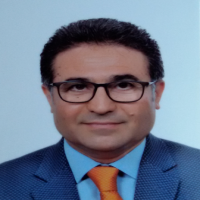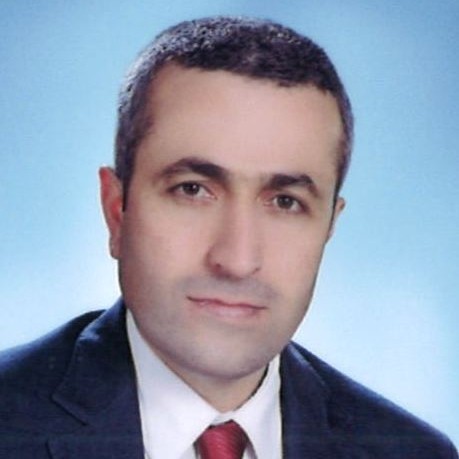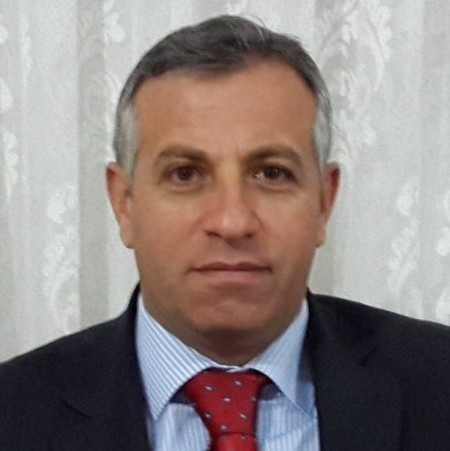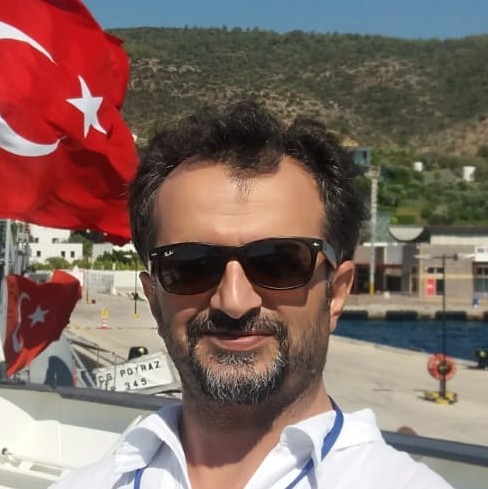Research Article
Review Article
Issue Reviewers

 0000-0001-5658-2183
0000-0001-5658-2183




 0000-0001-8924-6549
0000-0001-8924-6549


 0000-0002-9837-892X
0000-0002-9837-892X






 0000-0002-2597-152X
0000-0002-2597-152X


Aim & Scope
The aim of Mavi Atlas Journal is to host scientific publications that include social science-based research.
Mavi Atlas Magazine, History, Geography, Philosophy, Psychology, Sociology, Literature, etc. in the field of social sciences. It publishes studies of different nature (article, case study, criticism) in different fields twice a year.
Writing Rules
1. SUBMISSIONFor the works to be sent to the Mavi Atlas, it must be logged in via DergiPark and uploaded from the system.
2. GENRES
The manuscripts sent to the Journal fundamentally have to be related with the field of social sciences/humanities and they are categorized into two main groups. First group includes “Research Papers”. The manuscripts in second group consist of “Translation”, “Book Review”, “Discussion”, “Conversation” and “Conference and Seminar Texts” suitable for the aim of Journal and “News” about academic events related with the field primarily in Gümüşhane University.
3. LANGUAGE AND EXPRESSION
Papers written in Turkish should be in accordance with “Spelling Dictionary “of “Turkish Language Association”.
4. PAGE LAYOUT
Paper Framework
General page structure is prepared in A4 format with 2.5 cm from right and left margin 3 cm from top and bottom margin.
First page
“Author information” should be aligned to right margin and follow this order one under the other, Name and Surname, Title, Institution, E-Mail.
“Title” should be written in the centre, the first letter of the words should be written in capital and bold style, Garamond 12 type size.
“Subtitles” second level titles should be written in bold, lowercase letters, 12 type size and the initial letters of the words of the titles must be uppercase. Also should be at paragraph level
Note: The spaces before the titles should be 6 pt and then (as in the text) 3 pt line spacing.
“Abstract” Turkish abstract should be between 200 and 300 words and briefly present the topic. The English abstract (according to the English language grammer) should be between 200-400 words. format should be as unindent paragraph, Garamond 10 type 3 pt size, one line space and text justified between margins. The abstract should not contain abbreviations or references, chart or figures etc.
“Key Words” should be under the abstract and include at least 3 and most 5 words. Page format should be as unindent paragraph, Garamond 10 type size, one line space and text justified between margins.
Text
“Text” should be prepared in MS Word programme with Garamond 12 type size, first line indented, one line spacing and 3 pt space after each paragraph and it should be justified between margins.
Reference citations in text should be italic or double quoted (one of the options should be used.) References more than 44 words should be block quotations. Blockquotes should be indented 1.25 cm from the left and right margin. The font should be set as "Garamond" and the font size should be set as"11 points". 'Single line spacing' should be used as line spacing. 6 nk (inches) should be left from above and below.
Disclosures
Footnotes should be 10 points, justified, single spaced and should be written in Garamond font.
Figures and Tables
Table and figure captions should be numbered above the tables and figures and written with “Garamond” 11 point font. Table and figure numbers should be placed above the table in plain text and bold font, and no dots should be placed. Tables and figures should be numbered according to the order they appear in the text. Each table and figure should have a short and descriptive title. Table and figure title should be placed just below the table number, double-spaced. Table and figure titles should be written in italics and the first letters in capital letters. If possible, there should be no vertical lines in the table. Notes on the table and figure should be added only when needed. These notes should be placed at the bottom of the table. The font for the table should be "Garamond", 11 points. In mandatory cases, it can be reduced to 8 points.
Prepared tables and figures should be placed neatly in the section where they will be in the text, without exceeding the specified page dimensions. When necessary, tables and figures can be placed in the text before the references by creating an appendix section. Where necessary, explanatory footnotes or abbreviations should be placed just below the figures and tables, and their sources, if any, should be included in accordance with the in-text citation rules. For other needed information about the table and figure, see. https://apastyle.apa.org/style-grammar-guidelines/tables-figures/sample-tables#qualitative
Photos
Photos in publication should be professional and in JPEG format. Also rules for tables and figures should be obeyed.
5. REFERENCES
As of October 2021, bibliography and citations will be based on APA 7 spelling rules. You can visit https://apastyle.apa.org/.
Ethical Principles and Publication Policy
Ethical Principles
Gümüşhane University Journal of Faculty of Letters, Mavi Atlas adopts the development and distribution of information in an objective and respectful manner. The processes applied in this direction directly reflect the quality of the work of the authors and the institutions that support the authors. Peer-reviewed studies are the ones that support and materialize the scientific method. In the publication process, it is of utmost importance that all parties included authors, readers and researchers, publisher, reviewers and editors comply with the standards of ethical considerations. These stakeholders are required to pay attention to the standard general and specific ethical rules and responsibilities shared below according to the open access guidelines published by the International Committee of Medical Journal Editors (ICMJE) and Committee on Publication Ethics (COPE).
I. General Actions against scientific research and publication ethics
a) Plagiarism: To present the ideas, methods, data, practices, writings, figures or works of others as if they were their own work, without making reference to scientific ethical rules,
b) Forgery: To produce data not based on research, to prepare or change presented or published work based on unreal data, to report or publish them, to make undone research look like as done.
c) Distortion: Distorting research records and obtained data; pretending to use methods, devices and materials that were not actually used; evaluating data unsuitable to the research itself;, distorting data or results in order to adapt them to established theories or hypotheses; distorting or altering research results to promote or confirm the interests of the sponsoring person or foundation.
d) Repeated publishing: Submitting more than one work of research consisting of the same results in order to obtain associate professorship, examination review, or academic promotion.
e) Slicing: Destroying the integrity of the results of research by slicing it improperly and submitting fragments as specific assessments to gain academic promotion.
e) Unfair authorship: Adding persons who have not actively contributed to the production of the article or failing to add persons who actually did contribute; altering the arrangement of authors’ names improperly and unjustifiably; subtracting the names of actively contributing writers during the publication process or subsequent printings; or adding the name of an author who did not contribute as a way of gaining prestige.
f) Other ethical violations: Failure to indicate clearly the persons, institutions, and foundations that supported the publication of the research; failure to follow ethical rules while experimenting on animals and humans; failure to respect the rights of patients in publications; sharing information of a study for which you were appointed as referee prior to its publication; the misuse of sources, spaces, facilities, and apparatus provided for the research; or accusing someone intentionally and baselessly of ethical violations (Provided by the YÖK Scientific Research and Publication Codes of Conduct, Article Number 8)
II. The Responsibilities of Authors, Reviewers, and Editors:
1. Authors’ Responsibilities:
In studies requiring ethics committee permission, information about the permit (board name, date and number no) should be included in the method section and also on the first / last page of the article. In case reports, informed volunteer / consent form should be included in the article.
· The author must guarantee the authenticity and originality of the data used in the article. Copyright regulations must be followed for the ideas and works of art used.
· The author must make necessary revisions asked by the referee, including the revision of doubtful data and conclusions, errors, and possible instances of plagiarism. If the author fails to make such revisions, he or she must state reasons for doing so.
· Individuals who have not intellectually contributed to the manuscripts must not be indicated as authors.
· Works cited pages must comply with the formatting rules of the journal and References must be prepared in strict compliance with the requirements of publishers
· All work must be free of plagiarism and false data.
· If the authors identify mistakes in their studies, they must inform the editor or the editorial board and cooperate with the process of correction or withdrawal.
· The authors must indicate that the manuscript has not been submitted to any other journals and they must fill in the form of “Copyright Release.”
2. Reviewers’ Responsibilities
The administration of our journal promises to the successful execution and improvement of the refereeing process within the framework of ethical publishing rules. All articles are evaluated through a blind review process. Articles are forwarded to reviewers through the journal management system which operates by DergiPark for evaluation. Through the Reviewer Form sent from this system, the opinions of the reviewers regarding their decisions on the contribution of the article to the field and whether the article can be published or not and the reasons for these decisions are obtained. In this direction, it is based on the reviewers' compliance with the following principles.
· The reviewers must only agree to review manuscripts which align with their expertise.
· The reviewers must review the manuscripts in unbiased and objective manner.
· The reviewers must only review manuscripts which they do not have any conflict of interests.
· The reviewers must indicate deficiencies in terms of work, attribution, rules etc., related to the article and they must mark the points need to be revised by author on the article.
· The reviewers must include their final decision about the manuscript whether or not it should be published and why in the Article Evaluation form.
· The reviewers should respond in time when a manuscript is submitted to them to be reviewed and they should adhere to the ethical responsibilities declared hereby.
3.Editors’ Responsibilities
The editor must adhere to the following ethical responsibilities based on guidelines of "COPE Code of Conduct and Best Practice Guidelines for Journal Editors" and "COPE Best Practice Guidelines for Journal Editors" published as open Access by Committee on Publication Ethics (COPE). The editor is responsible for the all published articles in the journal. Besides above-mentioned responsibilities, the editor’s ethical duties and responsibilities are as follows.
· The editor should provide clear publication guidelines and a template of what is expected of them to the authors and continuously reviews the guidelines and templates.
· Editors have the right to accept or decline articles. They have to use this responsibility in a timely way that conforms to publishing schedules.
· Editors must not have a conflict of interest regarding articles they accept or reject.
· Editors should only accept articles that are original and contribute to the field of research.
· The editor should develop a database of suitable reviewers and update it on the basis of reviewer performance.
· Editors should enable authors to make corrections to their work after receiving requests for revision (thus enabling publication) or to withdraw their articles before or after any requests for revision are made.
· The editors will ensure that articles will be assessed by at least two referees according to the double-blind peer review system and to keep the identities of those referees confidential.
· Submission and publication acceptance dates must be included in the articles.
4. Plagiarism Policy
Editors, referees and authors are required to comply with international publication ethical rules and articles to comply with the spelling rules. If plagiarism or unethical behavior is detected, publication may be refused.
Stakeholders and readers of the research are welcomed to report plagiarism, duplicate publication, inaccuracies, suspicious content or situations they see in the published works in Gümüşhane University Faculty of Letters Mavi Atlas Journal to the e-mail address gu.maviatlas@gmail.com. The journal must follow up and report on any data and results related to the inquiry.
5. Mavi Atlas: Publıcatıon Prıncıples
1. Mavi Atlas (e-ISSN: 2148-5232) is published online twice a year (Spring and Fall).
2. The manuscripts sent to the Journal fundamentally have to be related with the field of social sciences and they are categorized into two main groups. First group includes “Research Papers” and “Review Article”. The manuscripts in second group consist of “Translation”, “Book Review”, “Bibliography” and “News”, about academic events related with the field primarily in Gümüşhane University.
3. Manuscripts in Turkish, English and German are accepted. (This matter is applied for the manuscripts in first group mentioned in “2nd Matter”. Manuscripts in second group in same matter must be Turkish. Besides, manuscripts of “Translation” category in given matter can be published in both target and source language according to the opinions of “Editorial board”).
4. All manuscripts sent to the Journal are examined by “Editorial Board” in terms of primarily content, writing guidelines and other aspects.
4.1. The manuscripts in the categories of “Research Paper” that are sent to the Journal have to get “Abstract” and “Keywords” in Turkish and English respectively (This matter is not applied to manuscripts in the category of “Translation”, “Book Review”, “Bibliography” and “News” necessarily).
4.2. The manuscripts in the category of “Research Paper” that are sent to the Journal must be original, unpublished and cannot be submitted simultaneously for publication elsewhere.
4.3. Blind referee system is applied to the manuscripts in the categories of “Research Paper”.
4.4. “Research Papers” those are suitable for “Publication Principles” are evaluated by at least two referees. Favourable reports of two referees are necessary so that such manuscripts can be accepted for publication. In case one of the reports is favourable and the other is unfavourable, relevant manuscript is sent to a third referee. “Editorial Board” decides approval or rejection of manuscript in accordance with report from third referee.
4.5. Whether manuscripts in the form of “Translation”, “Book Review”, “Bibliography” and “News” which is complying with “Publication Principles” will be published or not depends on reports of at least two members of “Editorial Board”.
4.6. Copyright problems of “Translation” manuscripts must be resolved by translator(s) and Faculty of Letters of Gümüşhane University is not a party of this matter in some way or another.
4.7. After the process mentioned above is completed, “Editorial Board” decides whether the manuscripts will be published as they are or after partially being edited. Results are sent to author(s). Manuscripts demanded for further revision should be delivered in a month at the latest.
5. Legal liability of manuscripts published in the Journal completely belongs to author(s) and opinions defended do not represent Faculty of Letters of Gümüşhane University.
6. No payments are made to the author(s) for published manuscripts.
7. Copyright of published manuscripts, whether declared or not, is accepted to be transferred to Mavi Atlas. This matter also shows that authors accept the rules of Open Journal Systems.
8. Citation is allowed provided that reference of journal is given.
Price Policy
No fee is charged from the author or his/her institution.
e-ISSN: 2148-5232
